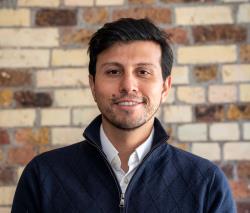Communication is Humanitarian Aid
World Association for Christian Communication/Communicating with Disaster Affected Communities Network
Session 224
Safeguarding Rights in Times of Risk
An exploration of how communication/information integrity is crucial in the context of civil strife and vital to policy-making about rebuilding infrastruture and shaping post-conflict dialogue. There are multiple opportunities for the media to play a constructive role in conflict transformation. Through their work, the media can strengthen dialogue processes by introducing and anchoring important issues in national and local discourses. They can help to break up stereotypes of victims and perpetratorsand build up the public's knowledge about political decisions relating to peace deals and the like, thus making potential transformation processes more participatory. How can WSIS+20 meet the needs of people living in disaster-affected communities? How can WSIS+20 Action Lines address the communication deficits in conflict situations? How can the Global Digital Compact be utilised to improve affordability, accessibility, and accountability in conflict situations?




-
 C3. Access to information and knowledge
C3. Access to information and knowledge
-
 C6. Enabling environment
C6. Enabling environment
-
 C9. Media
C9. Media
-
 C10. Ethical dimensions of the Information Society
C10. Ethical dimensions of the Information Society
Contributors to the debate start from the assumption that cooperation with the media must be proactively, not reactively, built into the design and implementation of peacebuilding interventions, as they are able to identify and make visible the needs and ideas of the local community, as well as the resulting logic of action. They can update a community on events, provide individuals with information and explain the logic of action of a variety of actors, including peacebuilders. Cooperation with the media helps peacebuilders make constructive contributions to conflict transformation processes, build capacity and act as multipliers for these processes. In this way a media enabling environment can be established that crucially provides access to reliable and trustworthy information and knowledge.
-
 Goal 16: Promote just, peaceful and inclusive societies
Goal 16: Promote just, peaceful and inclusive societies
Just, peaceful and inclusive societies require affordability, accessibility, and equity in relation to the communication and media ecosystem. The lives of people and communities living in conflict situations are threatened by armed incursions, but also by deprivations of all kinds, that can be mitigated by reliable and trustworthy communications that in themselves become a form of humanitarian aid.